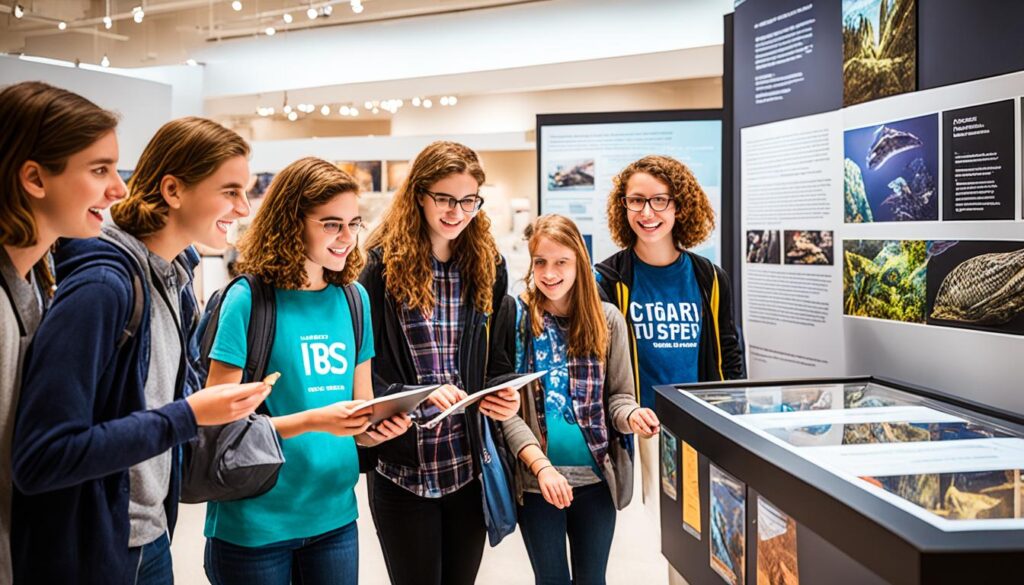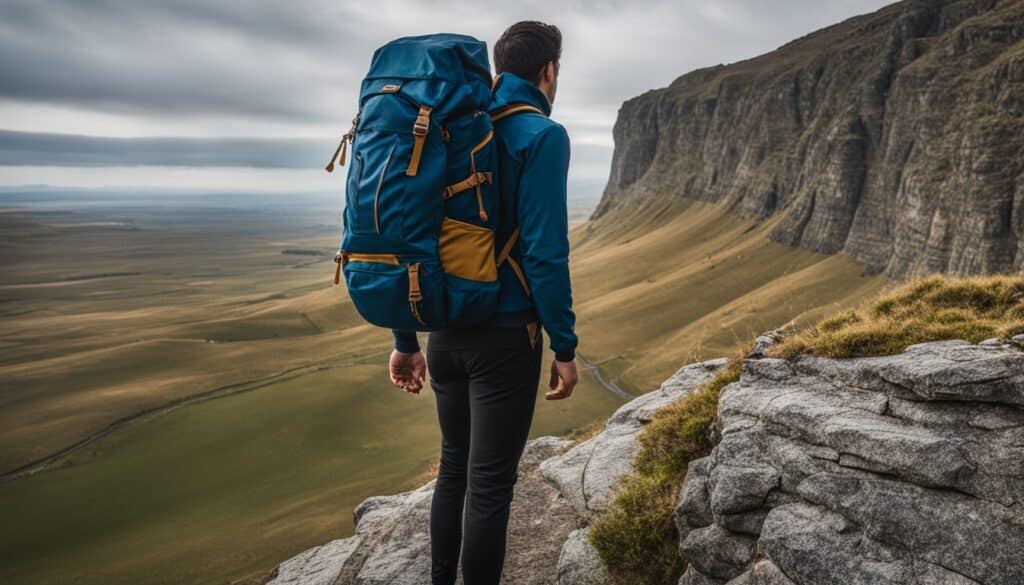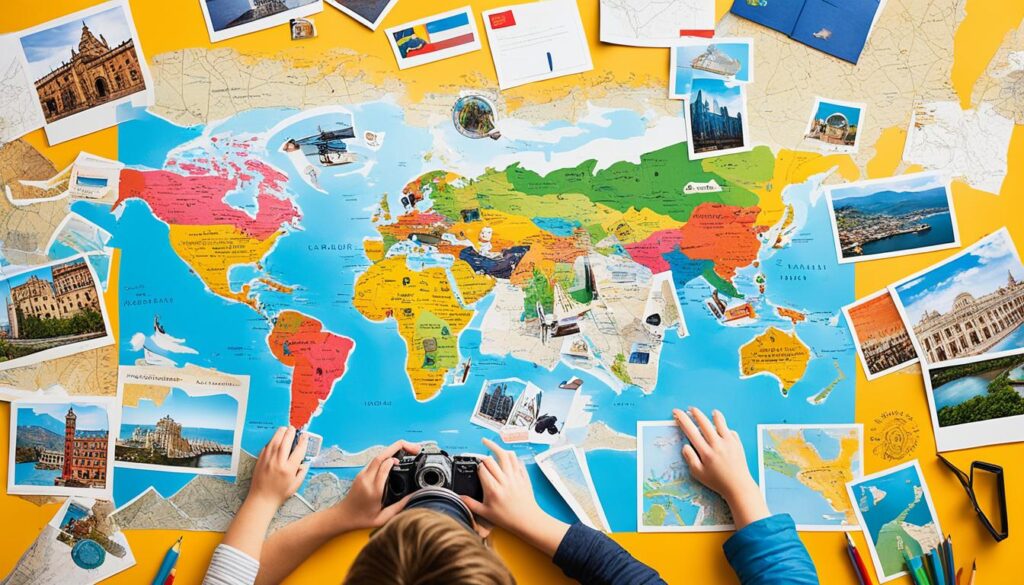The Benefits Of Educational Travel For Students Of All Ages
Educational travel is great for all students of all ages. It makes them more aware of different cultures and the world. By stepping out of their comfort zones, they learn empathy and understanding. This can change how they see the world. Traveling also boosts their knowledge in many subjects.
It lets them take charge of learning through projects. They get to learn in hands-on ways. Educational trips not only improve their education but also how they see themselves. It helps them find out more about who they are. This builds their confidence. They also learn key skills like how to manage time and solve problems. Traveling with friends helps them make connections that could last a lifetime.
These trips can paint a brighter future for them. By seeing new things and meeting new people, they get inspired. They learn about job opportunities that they might not have known about. This makes educational travel not just fun, but also very valuable for their growth.
Key Takeaways : Benefits Of Educational Travel
- Educational travel increases cultural and global awareness by removing students from their comfort zones and promoting empathy and understanding of others.
- Traveling helps students gain content knowledge through integrated subjects, student-directed project-based learning, and immersive experiences.
- Educational travel can develop a healthy self-concept, renew student confidence, and foster the development of essential 21st century skills.
- Traveling with peers can build lifelong friendships and a sense of belonging and camaraderie.
- Educational travel can help students envision a brighter future and open doors to new opportunities, including networking and internships.
Increase Cultural and Global Awareness
Getting students out of their usual surroundings helps them learn about different cultures. This is especially hard for teens who are focused mainly on themselves. Trips let students see things from a new point of view. This can change how they see the world, building their ability to understand and care about others. Seeing how other people live also deepens their knowledge of the world.
Remove Students From Their Comfort Zones
Taking students to places they’ve never been before can really change them. It makes them leave their familiar worlds and face new ways of life. This can make them appreciate the many different people and cultures out there.
Gain Empathy and Understanding of Others
Visiting other cultures makes students better at understanding and caring about others. Meeting people from all walks of life helps them see the world through different eyes. This process of learning to feel for others can change how they think and act.
Alter Students’ Worldview
Travel can change the way students see the world. It makes them question their old beliefs by showing them new truths. Being open to new cultures and ways of life makes them grow as people.
Gaining Content Knowledge

Content knowledge is key when we travel for education. It links many subjects together, especially in student-directed project-based learning. Before the trip, students study and do their own projects. These are all about the trip’s purpose. On the trip, they also work on projects, alone or together. Afterwards, they show what they’ve done to others.
Through this way, students really understand and remember the topics. They are deeply involved in learning. With active learning through experience, they gain knowledge that sticks with them. This makes their learning journey much better.
Integrate Subjects Through Travel
Traveling for education is a great chance to link different subjects. In a new place, students see how things like history, geography, and culture connect. This broad view helps them understand the world and their studies better.
Student-Directed Project-Based Learning
Before and during the trip, students lead their own learning with student-directed project-based learning. They create and manage their projects. This gives them a bigger part in their learning. It also makes the knowledge they gain more useful and interesting to them.
Immersive and Active Learning Experiences
The heart of educational travel is its hands-on learning. In a new place, students get to really interact with their studies. This way, they remember and understand the information better. It makes them want to learn more and explore on their own.
Develop a Healthy Self-Concept

Educational travel can make students feel better about themselves. This is especially true for teenagers who deal with a lot of stress. When students go on trips, they get a chance to see things differently. They learn new things about who they are and what they can do.
A trip can really change a student. They come back with more confidence. They also understand themselves better.
Opportunity for Self-Discovery
Getting away helps students find new things about themselves. They might not have looked at these parts before. Teenagers face a lot of pressure at home and school. This makes it hard for them to really know who they are.
This journey of self-discovery is eye-opening. It helps students know what they are good at. They get to see what they enjoy. And this is very important for them.
Renewed Spirit and Confidence
Trips for learning can really change how students see themselves. They leave their comfort zones and see new places. This changes something inside them.
After the trip, they feel better about themselves. They are more sure of what they can do. And they believe in themselves more. This makes them do better in school. It also helps in making friends. They become more ready to face new things.
Develop Critical 21st Century Skills

Educational travel helps students gain essential skills for the 21st century. They learn to plan, manage time, and work well with others. This is very useful in our constantly changing world.
Students get to take part in planning trips. This means they learn to set goals, find good information, and organize their travels. They also get to problem-solve and think critically while facing new challenges.
Practice Organization and Time Management
Students are encouraged to help plan their educational trips. This teaches them skills like setting goals and managing their time. These skills are needed for jobs in the modern world.
Enhance Problem-Solving and Critical Thinking
Traveling gives students new problems to solve. They must think quickly and come up with smart solutions. This could be figuring out directions in a new place or adapting to a different culture.
Foster Teamwork and Creativity
Educational trips often include projects that need teamwork. Students learn to communicate and work well with others. This helps them use their creativity and different skills to succeed together.
| Skill | Description | Benefit |
|---|---|---|
| Organization and Time Management | Students plan trip logistics, set goals, and manage resources. | Develop essential workplace skills for the 21st century. |
| Problem-Solving and Critical Thinking | Students navigate challenges and analyze information to devise solutions. | Enhance abilities to tackle complex issues with confidence. |
| Teamwork and Creativity | Students collaborate on project-based learning experiences. | Strengthen communication, collaboration, and creative skills. |
Build Lifelong Friendships
Educational travel creates a strong sense of belonging and camaraderie among students. They step out of their comfort zones and explore new places. This makes students feel they are all in the same boat, facing the unknown but doing it together. In these moments, they are open to making friends that last a lifetime, friends made beyond the classroom.
Create Bonds Through Shared Experiences
While exploring new places, students find a unique sense of belonging. This feeling is hard to find in school. Adventures abroad give students the chance to rely on each other and solve problems together. These shared moments help them make friendships that stay strong.
Feelings of Belonging and Camaraderie
Educational travel is a big deal for students who feel alone at home. The shared adventures help them lower their defenses and reach out to others. As a result, they make deep and long-lasting bonds.
Envision a Bright Future

The chance to imagine a positive future gets a boost with educational trips. This is really key for students from underrepresented or low-income backgrounds. They might not often get to see new places due to limited travel chances. Many kids facing poverty just focus on today and lack hope of graduating high school. But, with a trip, they get a fresh viewpoint. They begin to think more optimistically about what lies ahead, even without a clear plan. Travel shows them a world of possibilities.
These trips offer a special chance for students to expand their worldviews. They get to be part of new cultures and surroundings. This helps them see things in a positive light. It might help in shaking off earlier beliefs that their big dreams were impossible. This boost in hope and self-confidence drives them to follow their ambitions for a happier life.
Moreover, educational trips play a huge role in helping underrepresented students overcome poverty. They introduce youngsters to a wide array of experiences and chances. This can literally show them a world beyond what they are used to. It pushes them to aim high and work towards realizing dreams they once thought were unattainable. By broadening their horizons and boosting their optimism, these trips offer a real chance at hoping for a better future and taking steps to make that happen.
Open Doors of Opportunity

Educational travel opens doors to learning opportunities and life experiences that would otherwise remain closed. The exposure and hands-on nature of travel are key. They set the stage for deep, meaningful, and life-changing learning. This kind of learning is hard to get in a regular classroom.
For instance, one student got internships at a ranch. This happened because they made a great impression during a school trip. This led to a career in agriculture. Without the travel, making these connections and finding this career would have been much harder.
Exposure to New Experiences
Traveling allows students to open doors of opportunity and gain exposure to a wide range of new experiences. These unique learning opportunities and life experiences can greatly broaden their horizons. It may inspire them to choose new careers and open doors that otherwise they’d have never known about.
Networking and Internship Possibilities
Educational travel also offers valuable networking and internship chances for students. By connecting in new places and with professionals, students can build key relationships. They also get hands-on experience which could lead to career opportunities. These internships and connections might be life-changing. They could show students new potential and open up amazing pathways they never thought of.
Teaching Responsibility

When students travel, they’re trusted to be responsible. This trust helps them learn about time management, street safety, and organization. Educators believe that this trust leads to independent and responsible behavior over time.
Time Management and Street Safety
Exploring a city means students must be responsible and organized. They need to be punctual and stay safe on busy streets. These experiences help them learn time keeping and street safety skills for life.
Encourage Independent Behavior
Travel gives students chances to be more responsible. They must use public transport, order food in different languages, and solve problems. These opportunities support their independent behavior and self-reliance.
Experiencing Different Cultures

Children learn a lot at school but it’s just the beginning. Travel in education opens their eyes to the wider world. It helps them approach life with confidence. They learn to respect and understand people worldwide. This makes them more than citizens of one place; they are “world citizens“. Such students will find it easier to thrive as they grow up.
Embrace Diversity and Respect
Visiting different cultures teaches students to love diversity. It shows them that respect is key, even when faced with differences. They learn to see the world through a fresh perspective.
Become Global Citizens
Through study trips, students step beyond their hometowns. They become global citizens, understanding the world better. They see how global issues connect us all. This understanding makes them ready for our globalized future.
Language Learning

One top way to learn a language is by being immersed in it. Without heading to a new place, real authentic conversations can be hard. Being in a country where the language is spoken can really inspire and motivate learners.
Immersion in Authentic Conversations
Traveling or working in another country makes you pick up new words naturally. This happens through authentic conversations and by being immersed in the language. It gives students a great chance to improve their skills while living in the language every day.
Organic Vocabulary Acquisition
Educational trips help students get active with the language. This makes organic vocabulary acquisition happen. By using the language in their daily life, students pick up the words they need without effort. This makes really learning the language a lot easier and more interesting.
Building Strong Relationships

School trips bring students and teachers closer. They create relationships built on trust. These bonds make learning easier. Trips are about shared experiences. They create lasting memories and friendships. These experiences strengthen the bonds between students and their teachers.
Create Lasting Memories and Friendships
Memories and friends from school trips can last a lifetime. Facing new challenges together creates a strong sense of camaraderie and belonging. This goes beyond the classroom. It shapes the school culture into a place where everyone is supported and encouraged.
Foster Trust Between Students and Teachers
Trips help students and teachers trust each other more. They face unknowns and challenges together. This teamwork deepens their trust and respect. It makes the learning space better. It also helps students be more responsible and independent.
Also Read : Journey Through Time: Exploring Historic Travel Destinations
Conclusion
Educational travel offers many benefits that can greatly affect students. It helps them become more culturally and globally aware. They also learn important 21st century skills and make lifelong friends. It gives them chances to grow personally and learn by putting them in new places and situations. Travel helps students have a better self-image, see a brighter future, and appreciate other cultures.
These benefits come through many ways. Travel makes learning more interesting by connecting topics. It also lets students take charge of their learning through project-based work. By traveling, students learn to be more independent. They see the world through different eyes and learn directly. This improves their language, confidence, and understanding of diverse cultures.
The value of educational travel is being more widely understood by educators and leaders. Making these travel experiences available to all students is important. By supporting travel programs, we help students from all backgrounds. This empowers the future generation to be global citizens ready to make a positive difference.
FAQs
Q: What are the benefits of student travel?
A: Student travel provides educational benefits, helps students develop social skills, exposes them to different cultures and languages, and allows them to take personal responsibility for their experiences.
Q: How can educational tours benefit high school students?
A: Educational tours can allow high school students to study abroad, experience history firsthand, navigate new cities, and develop newfound social skills.
Q: How does travel inspire students to learn?
A: Many students who participate in student travel programs say that travel inspired them to learn about different ideas, languages, and cultures in a way that traditional education cannot match.
Q: What impact does educational travel have on students’ lives?
A: Educational travel has great benefits on students’ lives by broadening their perspectives, enhancing their social skills, and encouraging personal growth through exposure to new experiences.
Q: How do student travelers benefit from navigating new destinations?
A: Student travelers develop language skills, learn to overcome language barriers, and become more adaptable by navigating new cities and interacting with people from other cultures.
Q: In what ways does educational travel help students develop personal responsibility?
A: By allowing students to experience history, foreign languages, and diverse environments, educational travel fosters personal responsibility and encourages students to take ownership of their learning experiences.
Q: How do social skills improve through student travel?
A: Student travel offers opportunities for students to interact with people from other cultures, engage in new social situations, and collaborate with peers, leading to enhanced social skills and a broader worldview.
